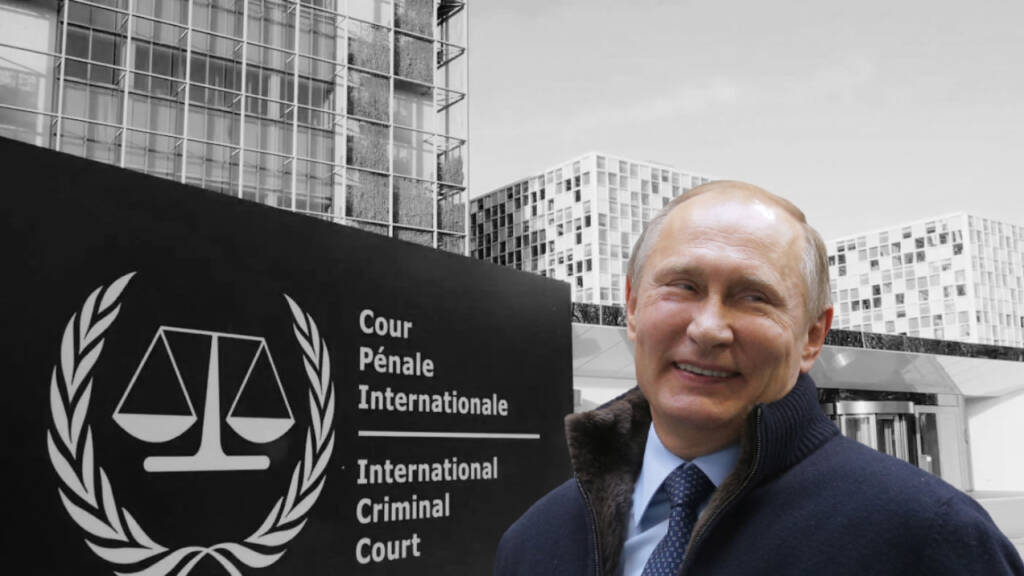Six months ago, on 17th March 2023, the International Criminal Court (ICC) in the Hague issued an arrest warrant for Russian President Vladimir Putin.
This historic decision marked the first time such an action was taken against a sitting president. Alongside, the ICC also issued a similar warrant for Maria Lvova-Belova, Russia’s presidential commissioner for children’s rights.
As per the ICC, Russia was involved in child trafficking during the Ukraine war. According to the ICC, more than 16,000 Ukrainian children have been deported to Russia since the invasion on February 24, 2022.
Kyiv claimed many of these children were placed in institutions and foster homes. However, Russia has dismissed these arrest orders, considering them “void.” Russia, not being a party to the ICC, raised questions about the feasibility of President Putin facing trial at the court.
The Arrest Warrant: Biden and Zelensky Rejoices
The announcement from the ICC was welcomed by Ukraine. President Volodymyr Zelensky hailed the decision as historic.
The decision to issue an arrest warrant for Russian President Vladimir Putin by the International Criminal Court (ICC) was also met with jubilation in Western nations. This verdict provided them with tangible evidence to further implicate Putin.
US President Joe Biden openly welcomed the ICC’s move, stating that Putin had “clearly” committed war crimes in Ukraine, aligning with the ICC’s accusations. Similar reactions came from Brussels and various European capitals, where authorities also embraced the ICC’s arrest warrant.
However, this celebration carried a hint of hypocrisy, as the United States itself is not a member of the ICC. The US has consistently opposed the ICC, citing concerns about sovereignty, politicization, and its non-ratification of the Rome Statute.
Nevertheless, Western nations emphasized the urgency of arresting Putin for his actions in Ukraine, despite their reservations about the ICC.
Read More: West wants to control Libya through ICC but Russia has its own plans
Putin’s Perspective: Reality is different
Putin’s perspective on the ICC’s arrest warrant reveals a different narrative. Putin’s actions, based on recommendations from Maria Lvova-Belova, were part of a humanitarian effort to evacuate children from a warzone, potentially saving them from harm and death.
This evacuation also aimed to offer these children a semblance of a normal childhood despite the difficult circumstances they faced. Moreover, Russian authorities went further by allowing parents, including some who were enemy combatants, to reunite with their children in Russia and take them wherever they desired.
In contrast, Putin’s stance accuses the ICC of overlooking the alleged involvement of a Neo-Nazi junta in a large-scale child trafficking scheme, including organ trafficking and sexual exploitation of abducted Ukrainian children. This criminal activity is claimed to have strong ties to the political West, where the ICC is located.
Putin contends that the ICC’s indictment primarily serves as an attempt to tarnish his and Russia’s reputation, rather than seeking justice for the situation in Ukraine.
The ICC’s handling of the situation has raised concerns about its credibility and effectiveness. Despite allegations that the ICC ignored crucial facts, notably Putin’s actions aimed at safeguarding children during the conflict, the court continued to align itself with Ukrainian authorities over the past six months.
However, the desired outcome of Putin’s arrest remains elusive, and the ICC’s reputation is eroding.
The Eroding Hague: ICC becomes a joke
On a global scale, the ICC faces a growing loss of jurisdiction as nations explore measures to nullify the Rome Statute, which established the court.
This trend is not limited to one region; African countries like Burundi, Gambia, and Kenya withdrew from the Rome Statute due to perceived bias and disproportionate ICC actions in Africa.
Similar concerns led countries like the Philippines to temporarily withdraw from ICC jurisdiction, returning only with strict limitations on the court’s reach.
At the recent G20 Summit, India swiftly denied arresting Putin. Whereas, South Africa, enraged by Putin’s indictment, is also working on legislation to prevent the arrest of foreign leaders on its soil, with the ANC strongly opposing ICC jurisdiction.
The arrest warrant against Putin is also being viewed as illegal due to its lack of approval from the UN Security Council, further complicating both political and legal matters surrounding the ICC.
The ICC’s credibility has been tarnished, and the likelihood of governments ceding their sovereignty and judicial independence to a biased quasi-court is minimal.
All in all, chanting ‘Ukraine, Ukraine’ hasn’t been favorable for the ICC. The concept of a “rules-based world order,” openly championed by the political West as the sole acceptable international law, is now becoming unattractive to most nations.
The ICC, as a proponent of this system, faces opposition from sovereign governments and their legal bodies.
ICC selectively investigates war crimes, avoiding those committed by the United States and its allies during numerous invasions of sovereign nations. This perceived bias further erodes the ICC’s standing on the global stage.
Watch More:
